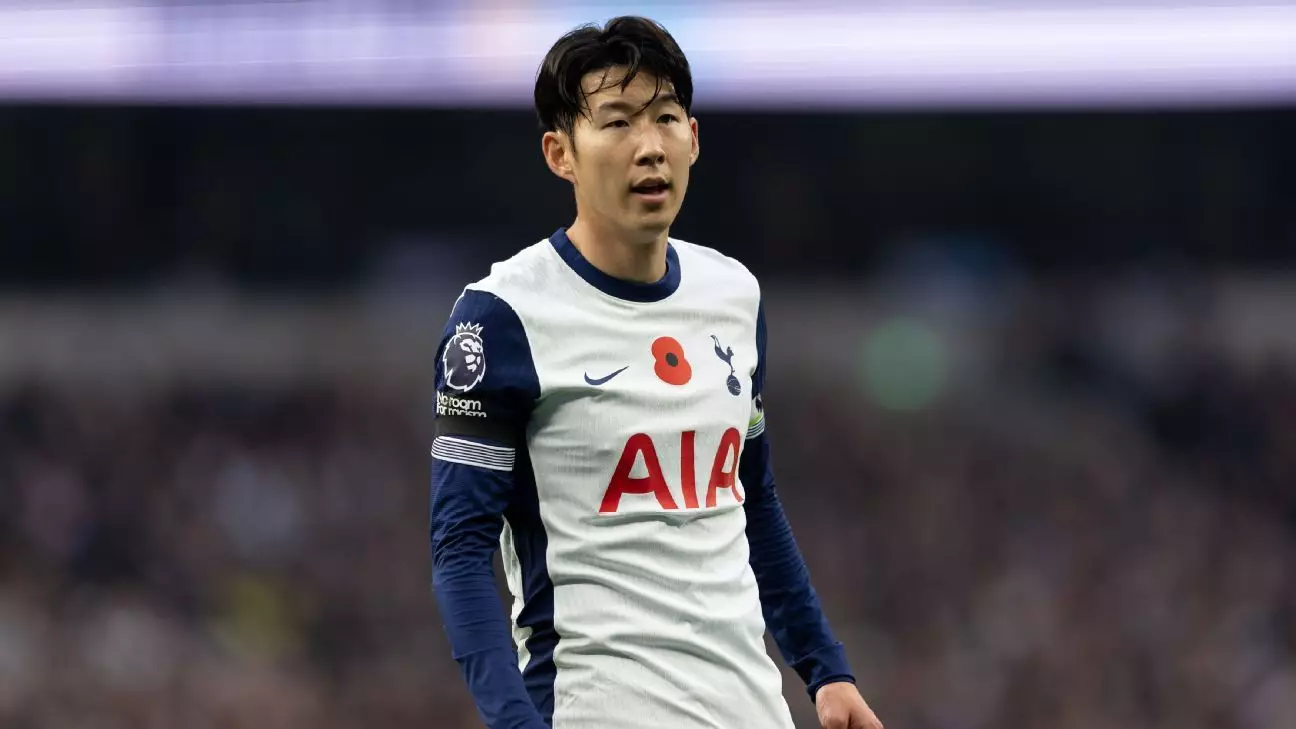The intersection of club football and international duty often presents coaches with a formidable challenge: how to manage player fitness while still respecting national pride and commitment. This situation is epitomized by the case of Son Heung-Min—Tottenham Hotspur’s talismanic forward and South Korea’s national star. Both Ange Postecoglou, Spurs’ manager, and Hong Myung-Bo, the newly appointed coach of South Korea, find themselves at a critical juncture. They must collaborate to ensure that Son’s physical condition is not compromised as he prepares to represent his country in upcoming World Cup qualifiers.
With the upcoming matches against Kuwait and Palestine on the horizon, the importance of Son’s health cannot be overstated. Having experienced multiple injuries recently, it is clear that a cautious approach must be taken. The nuances of this balancing act raise pressing questions about the optimum strategies for player management during international breaks. The goals are clear: enable Son to perform at his best while safeguarding against further injuries, which could derail both club and country in their respective campaigns.
Ange Postecoglou’s strategy is characterized by a careful, measured process when reintroducing Son into competitive matches. Having just returned from a frustrating defeat at the hands of Galatasaray, Tottenham is fully aware of the stakes involved in managing their star player. Postecoglou articulated his concerns about rushing Son back into action too hastily, especially after recent setbacks. His commitment to gradual re-integration is commendable, signifying not only a footballing strategy but an understanding of player psychology.
The term “collaborative approach” has emerged as a recurring theme in discussions around player welfare. Postecoglou’s reluctance to engage overly with national team managers—a sentiment stemming from his own past experiences—stresses the need for mutual respect and understanding within football’s interconnected world. This attitude reflects a broader need for cooperation, highlighting the fine line between club commitments and international representation, especially in a high-stakes environment where athletes often feel torn between their loyalties.
On the other hand, Hong Myung-Bo appears equally committed to prioritizing Son’s health over immediate competitive demands. His declaration to “protect his health” resonates deeply, especially given that the South Korean captain has already suffered from injuries that impacted both club and country. This type of affirmative communication from a national coach is vital; it sends a clear message to stakeholders that player welfare remains a top priority.
The proactive stance from Hong during this international window is particularly noteworthy. It showcases a renewed focus within the South Korean setup—moving away from previous paradigms where players might have been pressed into action regardless of their fitness. This new direction fosters trust between the player and coach, emphasizing that Son’s contributions will be most valuable when he is fully fit and healthy, rather than at half-capacity due to hasty reintegration.
Success in sport is often measured through short-term metrics—wins, goals, and accolades—but the long-term view is increasingly critical in today’s game. The case of Son Heung-Min serves as a case study in how clubs and nations should approach player management in a dynamic football landscape. Concepts like load management and injury rehabilitation are becoming more prevalent within professional circles, and each team must adapt their strategies accordingly.
The collaboration between Postecoglou and Hong outlines an emerging trend in modern football: the understanding that player care and performance optimization can coexist. If clubs can communicate effectively with national teams, the benefits could extend well beyond player fitness, potentially enhancing overall performance across both domains.
As Tottenham prepares for their next league fixture and South Korea gears up for their international matches, the hope remains that both Son and his managing figures find the right balance in creating an environment where he can flourish, ensuring his health and enhancing the overall performance of both club and country. The priority must always focus on the player—fostering his well-being and, ultimately, allowing him to shine on the global stage.

